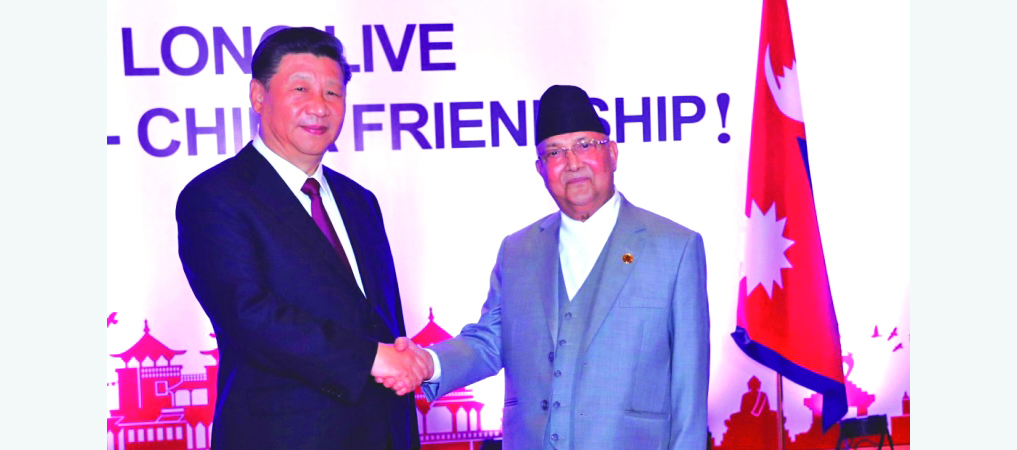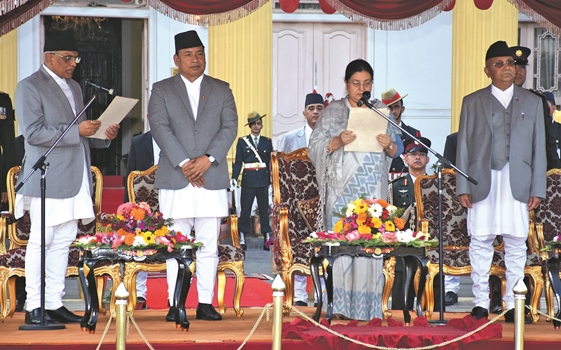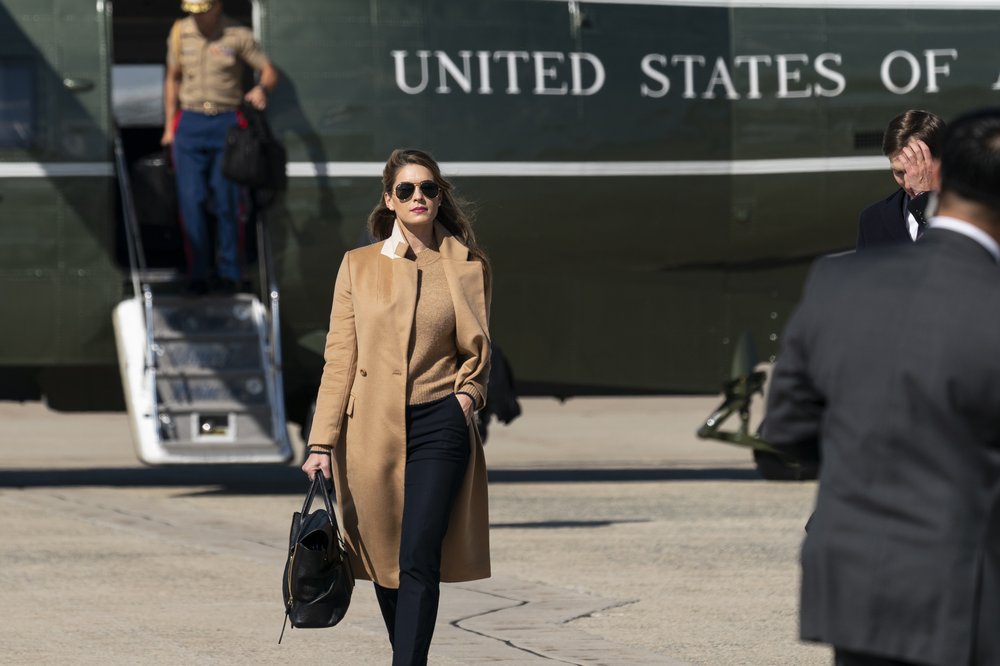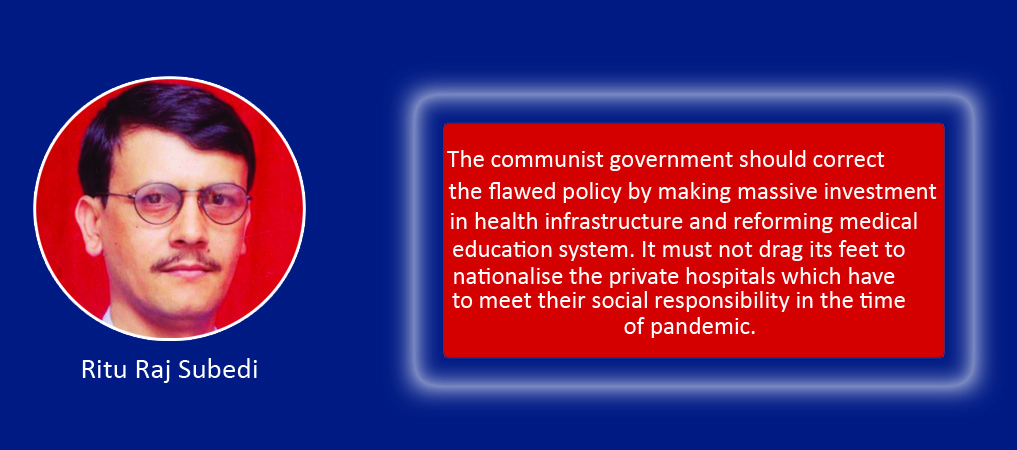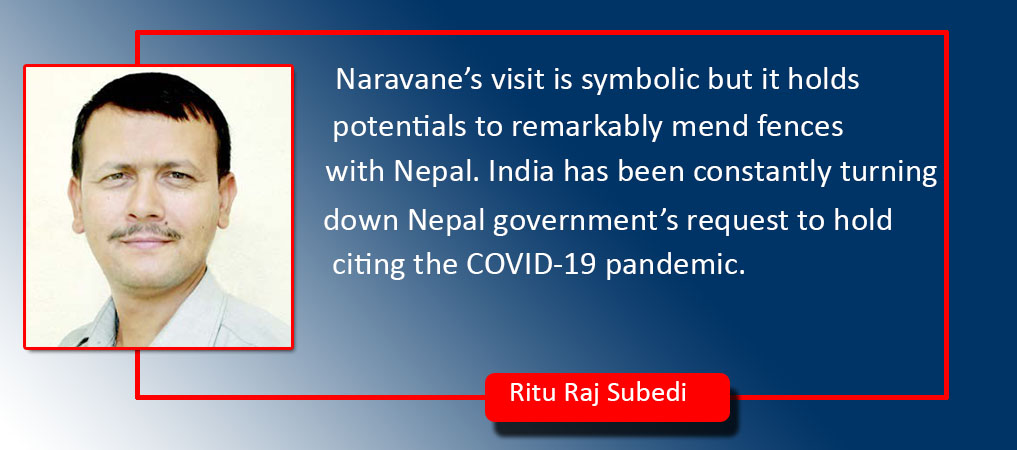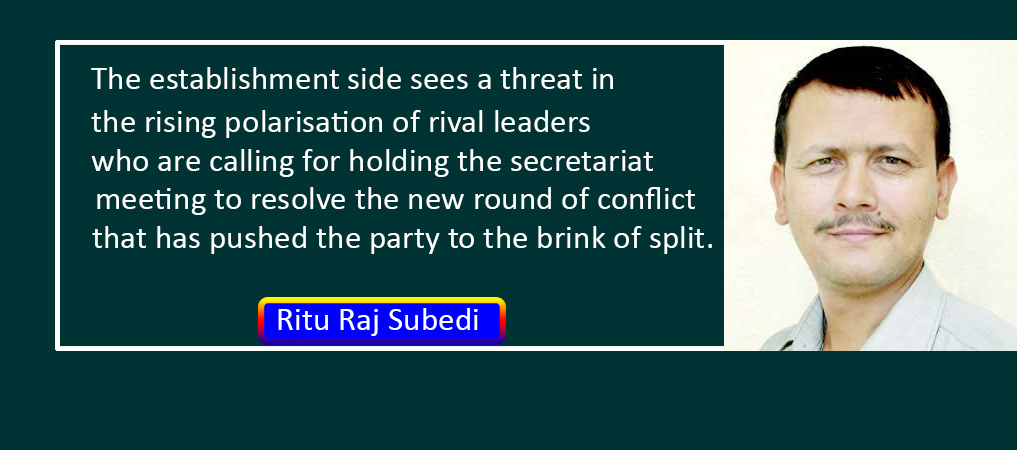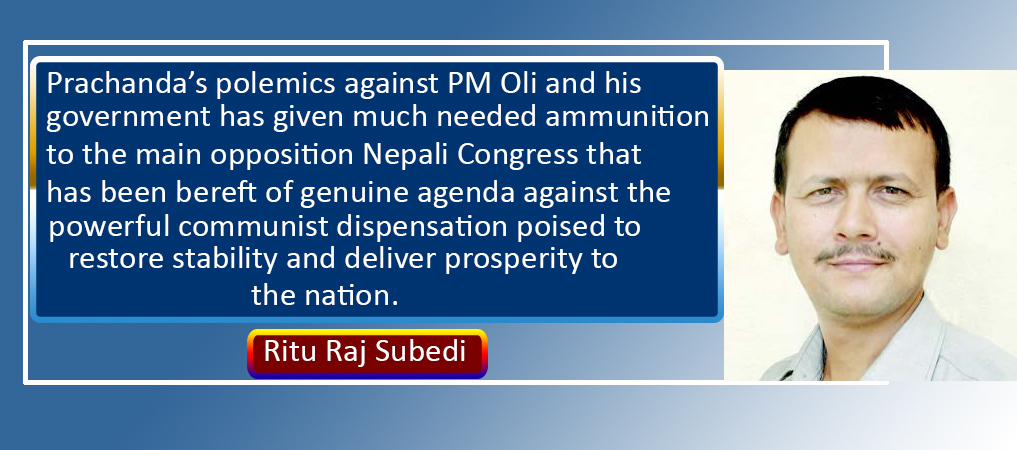Madhav Nepal Steals The Show
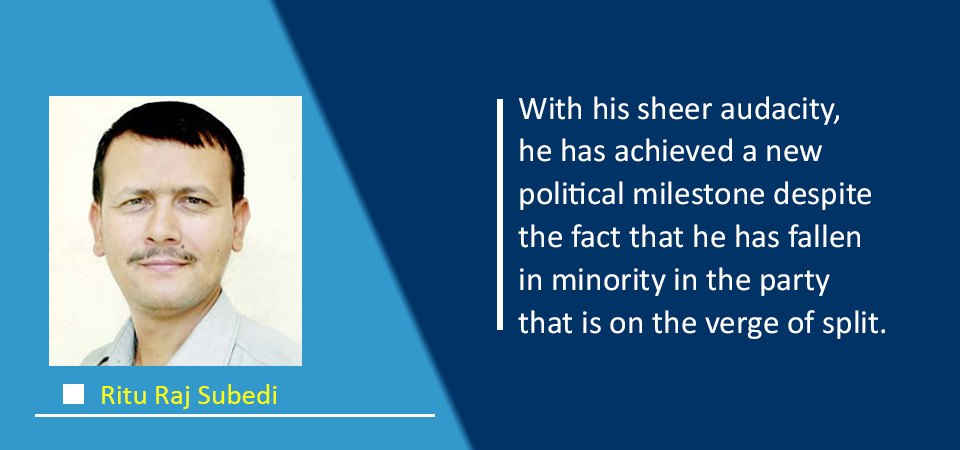
Ritu Raj Subedi
CPN-UML senior leader Madhav Nepal is now the talk of the town. He has been credited to have saved the constitution and parliament. Those, who support the Supreme Court verdict to reinstate the House of Representatives (HoR), praise Nepal for his guts to defy the party whip and stand against the unconstitutional move of former prime minister and UML chair KP Sharma Oli. On the other hand, Oli and his followers have denounced Nepal as the big villain of party and spoiler of its internal unity. The day Oli left Baluwatar, official residence of Prime Minister, and returned to his private home at Balkot, he blew a fuse and heaped all derogatory words on Nepal. He called Nepal lal gaddar (red traitor) for supporting the main opposition leader to become a new PM. Nepal played a decisive role in forcing Oli out of Baluwatar. Oli’s anger can be understood but terming his own former colleague betrayer shows that their hostility has reached a climax and there is no point of return to a truce.
However, on Thursday Oli softened his tone and called for leaving the bitter past behind and start a fresh chapter. He even announced an amnesty to all 22 UML dissident lawmakers who cast votes for NC president Sher Bahadur Deuba but he has not formally withdrawn the charge of lal gaddar labelled against Nepal. If one goes through the history of the country’s communist movements, it is no surprise to see communist leaders using the derogatory words against each other in a fit of anger. They revile their own comrades in strongest terms in haste and repent at leisure.
Ideological dispute
NCP-Masal general secretary Mohan Bikram Singh had earned notoriety for his controversial book ‘Gaddar Pushpa Lal.’ Why did Singh rush to accuse the NCP founding general secretary of being gaddar? However, he later retracted his statement and apologised. It was related to ideological differences, not the personal squabble. There was a time when the NCP leaders clashed as to who are the enemies and who are the class foes. They were sharply divided on analysing the class character of Nepali Congress and the ideological conflict between the Communist Party of Soviet Union and that of China. At one point, the NCP suffered a split over their incompatible positions on Sino-Soviet disputes.
Despite their ideological differences, there was unanimous view within the NCP that NC was a friendly force in the fight against Panchayat system. However, Singh changed his outlook while he was in prison. “We came to a conclusion that NC was a party of feudal and comprador classes. NC could not be our friend but was an enemy. We formed an opinion that those who consider our enemy as friend will be a traitor,” Singh recently told an online news portal. Pushpa Lal had thought the NC was a friendly party in their united struggle against the Panchayat system. Subsequent political events justified Pushpa Lal’s views and strategy.
Realising that it was a mistake to level such a disgusting charge against an iconic communist leader, who relentlessly struggled for New Democracy Revolution and against the autocratic Panchayat regime, NCP-Masal made assessment with regard to the role and contribution of Pushpa Lal and decided to withdraw the repulsive adjective. It even went on to change the title of the book from ‘Gaddar Pushpa Lal’ to Krantima Bhranti (Illusion in Revolution).
The above Mohan Bikram muck shows how the communist leaders display their short temper and short-sightedness and spit vile cusses against their own colleagues, leading to grave misunderstanding of situation and bitter infighting within the party. Oli’s labelling his own long-time friend a gaddar should be seen against this backdrop. Nepal defiantly stood against Oli’s decision to dissolve the HoR twice and haughty behaviour within the party. Nepal led 23 party lawmakers to sign a writ seeking to appoint Deuba as the new PM, replacing Oli. Nepal and his cohorts used their discretion as per Article 76 (5) while voting for Deuba during the vote of confidence. By doing so, he did not only save constitution and parliament but also defend the UML electoral strength in the House.
There was no rhyme or reason behind the dissolution of HoR where the UML commands the largest number of lawmakers. Can the UML candidates show the moral fibre when they canvass voters in the upcoming polls? While on the stump, they will probably face a barrage of questions: Why did you betray our mandate by disbanding the House before it completed the full term? Did you fulfil the earlier poll promises when we voted for you as the common candidate of Left Alliance? Did the move to dissolve the lower house not deal a fatal blow to the constitution and communist movement?
High ground
For all his past shortcomings, leader Nepal now seizes the moral high ground. Of course, he is a ‘traitor’ in the eyes of UML establishment as he violated the party whip and he faced a series of disciplinary action. But he betted his political career for a cause he fought throughout his life. With his sheer audacity, he has achieved a new political milestone despite the fact that he has fallen in minority in the party that is on the verge of split. Nepal has also carved a new political image. In the past, he was criticised as a vacillating leader who frequently changed his stances but now he is known for keeping his words amidst the challenges and obstacles.
Quite the contrary, Oli, who is known for taking resolute stand on the burning political issues, is shifting his positions as he is now on the defensive after losing the government leadership. Oli expelled Nepal and his camp’s lawmakers and then withdrew the disciplinary action against them time and again. As of yet, he decided to grant ‘amnesty’ to those lawmakers who ‘deviated’ from their path. He has stopped the process to seek clarification from the rebel lawmakers. But Nepal has scoffed at Oli’s announcement of amnesty, stating that it smacks of imperious attitude. At the moment, the prospect of UML unity looks slim. It also looks improbable that Oli and Nepal will bury the hatchet any time soon. Nonetheless, Nepal has proved that he is now a man of sterner character and not ready to give in to undue pressure, coercion and temptation.
(Deputy Executive Editor of The Rising Nepal, Subedi writes regularly on politics, foreign affairs and other contemporary issues. subedirituraj@yahoo.com)
Recent News

Do not make expressions casting dout on election: EC
14 Apr, 2022
CM Bhatta says may New Year 2079 BS inspire positive thinking
14 Apr, 2022
Three new cases, 44 recoveries in 24 hours
14 Apr, 2022
689 climbers of 84 teams so far acquire permits for climbing various peaks this spring season
14 Apr, 2022
How the rising cost of living crisis is impacting Nepal
14 Apr, 2022
US military confirms an interstellar meteor collided with Earth
14 Apr, 2022
Valneva Covid vaccine approved for use in UK
14 Apr, 2022
Chair Prachanda highlights need of unity among Maoist, Communist forces
14 Apr, 2022
Ranbir Kapoor and Alia Bhatt: Bollywood toasts star couple on wedding
14 Apr, 2022
President Bhandari confers decorations (Photo Feature)
14 Apr, 2022



